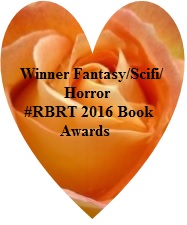I ask this question because I’m currently reading an Urban Fantasy novel that is causing me to scratch my head rather too often.
I think the answer to the glitches in this specific novel is probably that it lacked beta readers to pull the author up over the many illogical facets of this world. If it did have beta readers, they weren’t very picky about specifics, and that brings me around again to my question: how important is solid Worldbuilding to any fantasy (or SF) novel to the average reader?
I know many of my blog visitors are authors, and we tend on the whole to become extremely choosy about our reading material, particularly after a reader of our books (beta readers, or reviewers) has picked us up on glitches in our own work, so you may well be right there alongside me in being frustrated when you read what could have been a really good book but for the too-frequent events that bounce you out of the narrative with a ‘huh’? (And before anyone points it out, yes, that was a really long run-on sentence!)
I just checked out the reviews on this book (not many, so quick to read through) and two mention worldbuilding – one calls it ‘unique’ (can’t deny that) and the other talks of a ‘carefully crafted world’, which I will dispute – it might be carefully crafted, but it’s full of holes.
There are also procedural issues (e.g. someone walks into a room, holds a conversation, then stands up – but he was never shown sitting down), and some dodgy formatting. So why, you may ask, am I still reading it?
Because, if you skip over these details there is a riveting storyline and vivid characters to make you care. The writing (minus the hiccups) is great. Normally by this stage with so many bounces, I would have given up and consigned this novel to the DNF (did not finish) pile, but I’m not going to. I guess if I review it, it will be a 3 star. I just heartily wish the author had run it past, at the very least, some good beta readers, and probably a structural editor, then it might have been a 5 star. Such a disappointment.
SO back to the question – readers, how important is solid, logical world building to you?
And SFF authors, how picky do you find your readers to be about your worldbuilding?
























Hello, Deborah– good post. World building is paramount in any novel, no matter the setting or time-frame, no matter the genre. I don’t live in Paris or London, or Avalon, nor do I reside on Mars. So, I need the author to make that setting as real to me as if i were living it. As I often say to my clients, if it isn’t real to you as an author, how can it be made real to your readers? Design and structure that world, scribble maps and adhere to them, create that society, political structure, or religion. This is all necessary to know, even if it doesn’t figure in the story, because you must know it well portray it consistently. Thank you for this post!
LikeLiked by 1 person
Thanks for the comment, Connie. I know you feel the same as I do, you’ve written plenty of great posts on just this subject.
I’m sure this author had every intention to create a fully realised world, but for me the jumps in logic and the confused science behind it all suggest she could really have done with some help. Sometimes noticing our missing links is as hard as trying to proofread our own work.
LikeLike
Interesting observations. I’ve seen, too, that I will forgive mechanics when the story is enticing enough.
LikeLiked by 1 person
I don’t do it often – it has to be a REALLY good story. But how much better if it had a solid background too? Sigh…
LikeLike
Excellent post Deb. As you know, this is not my genre and I wouldn’t pretend to know about world building, but I should think by some of the holes you mentioned that a good outline method should be used with character analysis of what they’ve done, said, worn, etc. to keep the flow of the story. Like you said, if you have a character suddenly stand, it should have been obvious to the writer that they forgot to mention when they sat. Continuity is crucial in a story. 🙂
P.S. Hope you and you’re mum are doing ok? ❤
LikeLiked by 1 person
Hi Deb, yes I realise this is not anywhere near your genre, but continuity is central to any novel (or film or TV show), and is always jarring when there is a glitch.
I have now finished this book and been shocked to read in the afterward, thanks to both a beta reader and an editor! Just goes to show you need to be very picky about who you use for such jobs. The end was, for me, spoiled by another such glitch, so I’ve decided not to review as it would be too negative.
LikeLiked by 1 person
Oh, and thank you, we are rubbing along, settling into life again.
LikeLiked by 1 person
Wow, overlooked by betas and an editor. Possibly because a copy editor isn’t going to bother with developmental issues which are far more time and money consuming. And yes, editors are a tricky thing. I’ve noticed through the years of self pubbing so many writers are calling themselves editors for money on the side. A writer does not make an editor. 🙂 And glad to hear your mum is doing okay. ❤
LikeLiked by 1 person
Yes, it’s amazing how many people think they are editors, and how many authors don’t know which type of editor they need.
LikeLiked by 1 person
🙂 🙂
LikeLiked by 1 person